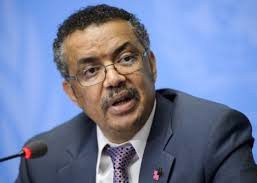The World Health Organisation (WHO) has expressed concern at South Africa’s decision to suspend the rollout of the AstraZeneca coronavirus vaccination programme, saying Tuesday that the study on which the decision was based was far from being conclusive.
South Africa’s Health Minister Zweli Mkhize said at the weekend that his country had taken the decision to suspend rollout of the vaccination programme following research showing it was less effective against the Covid-19 variant discovered here in late 2020.
However, WHO director general Tedros Adhanom Ghebreyesus expressed concern that the trial from which this data emanated was small and involved only young participants.
“Given the limited sample size of the trial and the younger healthier profile of the participants, it is important to determine whether or not the vaccine remains effective in preventing more severe illness,” Tedros said.
More research needed to be done on the efficacy of the vaccine in older age groups that have a higher risk of more severe infection, Tedros said.
According to the WHO chief, “several countries are succeeding in suppressing transmission, including those where new variants are circulating” using the suspended drug.
“It also seems increasingly clear that manufacturers will have to adjust to the evolution of the virus taking into account the latest variant for future shots, including boosters,” he said.
South Africa is not alone, for several European nations have refused to authorise the use of this vaccine in people over 65 years old, citing a lack of data proving its efficacy in this age group.
The AstraZeneca vaccine is currently a vital part of the WHO’s Covax programme, which is procuring vaccines to ensure equitable distribution around the world.
AstraZeneca accounts for nearly all of the over 300-million doses Covax is preparing to begin shipping to 145 countries – including South Africa – and WHO insisted the jab remained an important, life-saving tool in the fight against the coronavirus.
NM/jn/APA


